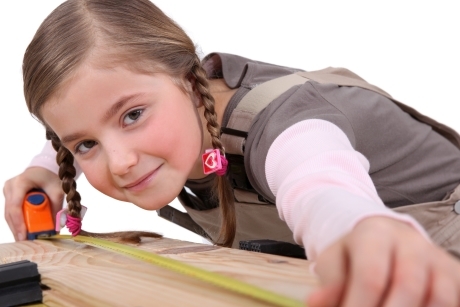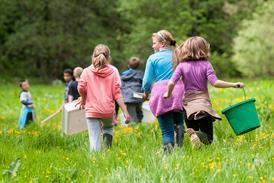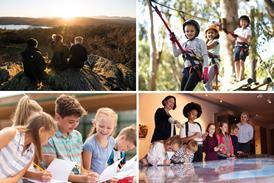
With commentators suggesting that the UK could be lacking 340,000 engineers by 2020, here are a few ideas to inspire pupils to study Design & Technology.
At the end of 2015 the results of a variety of studies were published in close succession, each one concluding that the UK was in the middle of – and facing a future with – a skills shortage in its workforce.
The Employer Skills Survey suggested that 146,000 vacancies had been left unfilled in the year it was studying because candidates didn’t have the skills or experience to be proficient in the roles.
A survey from CV Library, meanwhile, implied that 65 per cent of recruiters admitted to having difficulties when it came to filling certain skilled positions, especially in fields like engineering.
This month, manufacturing company HME Technology released a statement expressing their belief that D&T should be moved from an optional subject at GCSE to a core one.
And the head teacher of the Isle of Wight Studio School has supported the company’s sentiments.
"We fully support the ambition to see the subject at the core of the National Curriculum,” explained head teacher Richard White. “Without it, the shortfall in skilled workers could have a serious effect on the UK economy. We devote ourselves to the future careers of 14 to 19 year olds on the Isle of Wight and believe that D&T provides the skills required in many careers."
HME Technology has created a range of in-school teacher task sheets to give D&T teachers new and creative ideas for teaching the subjects woodwork, welding and 3D printing. Their aim is to engage more pupils with the subject in class.
But what opportunities are there for teaching the subject outside the classroom – where, research shows, pupils are already more inspired?
Avoncroft Museum, Worcestershire
The Avoncroft Museum is home to more than 25 different historic buildings and structures, which were saved from destruction and dismantled before being moved from around the West Midland counties.
Teaching sessions for Key Stage 1 to 3 include brickmaking, wattle and daub workshops, and timber framer sessions, during which children work together as a team to solve how to fit together the complex timber frame of a scaled-down Tudor building.
There’s a blacksmith on site, too, and teachers of older students can arrange for their pupils to see his work in progress.
Diggerland, Kent, Devon, Durham and Yorkshire
At Diggerland children can learn how to use everyday construction machinery including diggers and dumpers. Throughout the visit, students learn practical skills relevant to many industry related professions and also find out about health and safety.
Children can drive and operate excavators, dumpers, skid steer loaders, backhoe loaders, 4 x 4 cars, go-karts and mini Land Rovers.
Clifton Suspension Bridge, Bristol
The Bits and Pieces, Shapes, Materials and Bridge Bits session for Key Stage 1 and 2 pupils ties in to the Design & Technology curriculum.
As part of the hour-long workshop children participate in a led session out on the bridge to learn more about the shapes and materials used to build the landmark. Pupils are encouraged to find varied shapes and textures on the bridge and fill out a worksheet to record their findings. They’ll also participate in short activities to see and feel the bridge move and to understand how the bridge works before completing a labelling exercise in the visitor centre.
Avondale Glass, Pembrokeshire
Schools visiting Avondale Glass can witness artists glassblowing and glassmaking. They’ll learn what the glass is made from, how it’s moulded into shapes and how it is given different colours.
They’ll also find out about different traditional glassmaking tools and how quickly a piece can go wrong if the craftsperson isn’t watching it closely enough.
The visit will give pupils an appreciation of how traditional design skills are still used today and how technology has played a role in improving practices.
Norwich puppet theatre
The options for schools at Norwich Puppet Theatre range from History tours to Drama workshops. On the design technology front, though, classes can book onto a puppet making class. These experiences are available for all Key Stages and while little ones will design and make basic puppets using techniques like papier mache, older pupils can make more complex leg joints and linked constructions. Workshops can last anywhere from two hours to a full day.









